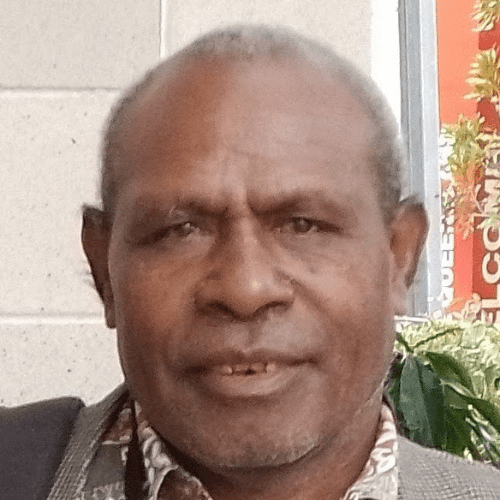
Joseph Kena’e Ka’au is a former journalist who is an environmental justice and human rights advocate. Joseph works with several women’s movements in Baimuru, a remote village in the Gulf Province of Papua New Guinea (PNG). Through this social mobilisation, he assists local women’s rights advocates to address the community’s social and environmental issues.
As a former journalist he reported on many systematic human rights abuses and lack of access to justice and government services to his community. Joseph says the standard of government services in PNG, including health and education, could be better. In his village, government services are hardly available, and this impacts on women most of all.
“We are tired of waiting 47 years for zero government services. We will organize ourselves and do the needful to improve the quality of lives in our community.”
Joseph added that now there are new and urgent challenges for his community, which he says risks significant and irreparable damage to the environment, the forest, rivers and sea on which his community depends. The most prominent ones are the new Papua LNG Project and the Purari hydropower project. According to Joseph, these projects will have massive social and environmental impacts as they plan to dump waste including hydrogen sulphide from a processing plant in the Purari river, which provides all the water in the Baimuru.
Joseph was introduced to the DTP by his friend Elisabeth Cox from Australian Freedom from Hunger Campaign (now Oxfam Australia), which helped to establish DTP with a grant back in 1989.
“I joined DTP training with the belief that facilitating dialogues could solve the conflicts of the decolonization process and the struggle for self-determination. In the DTP training, I met many people struggling with human rights issues in their countries. Some far worse than what I was experiencing in my country. I thought then that dialogue could be a venue to solve conflicts, mainly with decolonization and self-determination.”
Joseph remembers that José Ramos Horta, President of Timor-Leste was a trainer in that program. Following that training, Joseph developed a lot of sympathy for the people of East Timor.
“I supported the delegates of East Timor, Kanaky, West Papua and Tahiti Nui when they attended UN Decolonization Committee Meeting in Papua New Guinea”.
Joseph is now looking for support for his community as they challenge the companies and government supporting these major developments.
“Local people are now facing a dilemma, where the project is expected to be economically beneficial to the communities but will destroy the environment”.
After women of the community mobilised to voice their concerns Joseph initiated dialogue with the senior managers of the LNG company implementing one of the projects – in the hope that dialogue could help solve the problems, minimise harm and ensure benefits to the community.
At this point, Joseph wants to spend the rest of his life helping the people of his community as much as possible. Joseph is reaching out to DTP and DTP alumni for help in this unequal struggle between local communities and major corporations. “Now is the time to resist and reclaim our rights.”
DTP acknowledges the traditional custodians of the land on which we work, the Bedegal people of the Eora Nation. We recognise their lands were never ceded, and we acknowledge their struggles for recognition and rights and pay our respects to the Elders – past, present – and the youth who are working towards a brighter tomorrow. This continent always was and always will be Aboriginal land.
Aboriginal and Torres Strait Islander peoples should be aware that this website contains images or names of people who have passed away.
DTP acknowledges the traditional custodians of the land on which we work, the Bedegal people of the Eora Nation. We recognise their lands were never ceded, and we acknowledge their struggles for recognition and rights and pay our respects to the Elders – past, present – and the youth who are working towards a brighter tomorrow. This continent always was and always will be Aboriginal land.
Aboriginal and Torres Strait Islander peoples should be aware that this website contains images or names of people who have passed away.
Privacy Policy | Terms of Use | Disclaimer | Policies
© 2022 Diplomacy Training Program | ABN 31 003 925 148 | Web Design by Studio Clvr